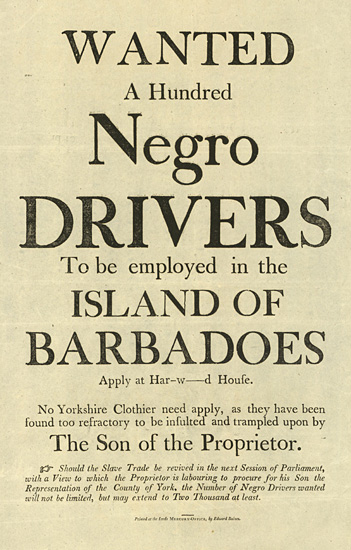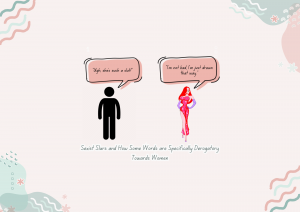In 1627, English colonizers began to settle in Barbados, an eastern Caribbean island, to expand their territory. Their primary reason for coming to Barbados was for planting sugar, so that England might avoid having to buy sugar from other European nations that produced sugar on their own Caribbean islands. The English saw how strong the demand for sugar was. Since sugar cane grew naturally on Barbados, the English saw Barbados as a lucrative opportunity.

However, the Englishmen who wanted to engage in this business had to decide who to send to Barbados to grow, harvest, and process the sugar cane into refined sugar. This was not an easy task, but these Englishmen did have a number of Irish prisoners serving various sentences. They decided on a way for these Irish prisoners to work off their sentences on Barbados sugar plantations. They sent thousands of indentured Irish prisoners to Barbados.1
As the years of growing and exporting this material continued, the English began to think of better ways for the crop to be harvested and exported faster. They needed a higher efficiency route, as well as a way that was cheaper, because the Irish indentured servants did receive some form of salary, even though they were indentured. By the 1670s, African slaves, a cheaper source of labor being used throughout the Caribbean islands, became the alternative to Irish indentured servants. As the English continued to expand their plantations, they began importing African slaves in increasing numbers.2
Between 1627 and 1807, more than 400,000 Africans, mainly originating from West Africa, had been brought to Barbados as slaves to work on sugar plantations. The English planters would request and receive more slaves whenever they believed they needed more for the plantations. The Africans were viewed as nothing more than interchangeable machine parts in the process of sugar production. The treatment experienced by the Africans was among the most inhumane in human history.3
Starting in 1640, Africans were thought of as inferior to Englishmen. Africans were not thought to have the capacity to be intelligent. In consideration of how dark skin color was defined as life of lesser value than light skin color, legal codes naturally evolved out of these attitudes.4

Although the English were continually resupplied with Africans, they felt the need to have restrictions or rules set in motion when it came to controlling the labor of African slaves. The Barbados Slave Code of 1661 created a way for planters to be able to have full capacity to control their slaves by any means they felt necessary without any legal repercussions. The Barbados Slave Code was originally enacted to serve both parties, trying to benefit the slaves and the planters; but it did not go according to plan. Slave owners were to protect their slaves from cruelty:
[N]egroes [are] an heathenish brutish and an unsertaine dangerous kinde of people…yett wee well know by the right rule of reason and order wee are not to leave them to the Arbitrary cruele and outragious wills of every evill disposed person but soo farr to protect them as wee doo many other goods and Chattles and alsoe somewhat farther as being created Men though without the Knowledge of God in the world.5
The slaves did receive one positive from the Barbados Slave Code: the ability to have a change a clothing once a year. The planters, on the other hand, were provided with many new ways to keep their slaves in line. They had the right and the authority to chastise, whip, brand, lacerate, cripple, set them on fire, or murder them with no negative consequences. The reason is during this time the English common Law, which included the right to a jury and judge, was not offered to the Africans, showing that they did not have the same rights as the planters. Africans were unable to be assured any of these statutes if their English masters harmed them in anyway.6
The Barbados Slave Codes began to spread from Barbados to Jamaica, Antigua, and also to South Carolina, where these Codes became the legal basis for slavery and the treatment of slaves in many of the thirteen colonies.7
- Hilary McD. Beckles, “A ‘riotous and Unruly Lot’: Irish Indentured Servants and Freemen in the English West Indies, 1644-1713,” The William and Mary Quarterly 47, no. 4 (1990): 503–7. ↵
- Hilary McD. Beckles, “A ‘riotous and unruly lot’: Irish Indentured Servants and Freemen in the English West Indies, 1644-1713,” The William and Mary Quarterly 47, no. 4 (1990): 505. ↵
- Kenneth Morgan, “Review of Caribbean Exchanges: Slavery and the Transformation of English Society, 1640-1700, by Susan Dwyer Amussen,” The Journal of Modern History 81, no. 3 (2009): 667. ↵
- Kenneth Morgan, “Review of Caribbean Exchanges: Slavery and the Transformation of English Society, 1640-1700, by Susan Dwyer Amussen,” The Journal of Modern History 81, no. 3 (2009): 667. ↵
- Barbados Slave Code of 1661, as quoted in Bradley J. Nicholson, “Legal Borrowing and the Origins of Slave Law in the British Colonies,” The American Journal of Legal History 38, no. 1 (1994): 38–54. Nicholson makes the point that the 1661 Code was only slightly modified in 1676, 1682, and 1688. ↵
- Bradley J. Nicholson, “Legal Borrowing and the Origins of Slave Law in the British Colonies,” The American Journal of Legal History 38, no. 1 (1994): 51. ↵
- M. Eugene Sirmans, “The Legal Status of the Slave in South Carolina, 1670-1740,” The Journal of Southern History 28, no. 4 (1962): 462–73. ↵



51 comments
Danielle Slaughter
This is a fantastic article, albeit sickening to read about the inhumanity levied against the African slaves. What strikes me is that the English first chose to use the Irish convicts, only resorting to Africans because their labor was “cheaper”. Never before have I seen hypocrisy such as that in the Barbados Slave Codes. Masters were supposed to guard their slaves against cruelty, yet they were allowed to inflict whatever punishment they desired, murder included? What an awful period in human history, but you presented it very well. I look forward to viewing the documentary!
Christopher Metta Bexar
I agree with Danielle. It would be interesting to go into archives and find the documents backing up this article. A topic for a future article, the slave codes themselves.
Most followers of history know that slavery was present in all countries colonized by European powers in the 16th through 19th centuries. The British were just likely more honest about documenting it. We know blacks were considered cattle and beasts of burden to be used and discarded when they no longer performed.
Samire Adam
It it horrifying to imagine any form of government trying to write, revise, and enact a law that is essentially approve the actions of an enslavement of a population. Not only was the Barbados Slave Codes a remarkably poor use of legislation, but I have now learned that the codes attempted to provide “benefits” to the African slaves, while the codes simultaneously state the many ways that the slave can be murdered by their owner at any moment.
Gabriela Murillo Diaz
We are constantly taught about slavery in history, but as we continue to learn the torture slaves endured just seems more and more horrific. It is a difficult time in history that I believe society is embarrassed to discuss. I think articles like these must be written if we want to learn from our mistakes and move forward as a nation. We cannot hide these horrors and expect them to disappear when they have happened. I enjoyed your article.
Arieana Martinez
The treatment of slaves was absolutely despicable. The fact that there was an entire system of treating people like they were cattle, is mind-bottling. This article wrapped everything together and had intense imagery of these horrific times. I was very engaged in this article, because I am glad that people are finally informing others of these heinous acts that were wrought upon the slaves. Great read.
Natalie Juarez
No matter how many times I learn about slavery, it is never easy to hear about the inhumane, horrific, and brutal acts from one human being to another. I can’t seem to wrap my head around how one can view human beings as “interchangeable machine parts” as mentioned in this article in Barbados. Learning about the Barbados Slave Code is a law everyone needs to learn about because it is something that may seem unbelievable but was in fact, extremely real which lead to injustice toward slaves and their humanity. This was a hard but great read.
Honoka Sasahara
It is so painful for me to hear how hard the treatment for slaves was. I think that it does totally not any sense that Irish prisoners were valued higher than African slaves. People’s lives should be considered equally in any cases. Although there is no more the system like buying or selling slaves, some are still working in unfair situations. I hope we could improve all of such situations.
Cynthia Rodriguez
It is difficult for me to wrap my heard around the fact that owning human beings was once justified. How could one possibly determine that skin color makes a person valuable? In the end, we are all human and it is upsetting that the English viewed the African slaves as nothing more than “machine parts” for their sugar plantation. It is also disappointing that the Barbados slave codes allowed the English to physically harm the slaves with no consequences. This was a good article, and it was both informative and engaging.
William Rittenhouse
That is crazy to think that the English were the ones who influenced the 13 colonies on how to treat slaves. The English were the ones who brutalized and inhumanely treat the slaves. Then they set the example for other countries. It’s terrible to imagine the types of things they did to the slaves. The history of plantations and the whole industry was a perfect example of how cruel humans can become without morals. This still goes on in some countries still. We are lucky to live in a country that is a free one.
Lorenzo Rivera
This article brought great emphasis on the dehumanizing history of slavery. The complete cruelty of slavery is appalling, and the fact that the Barbados slave codes were created in the first place is an insult to the entirety of the human race. Because racism still exists to this day, we as humans will never grow to become a truly superior people until everyone can see themselves for the value of their actions rather than the color of the skin.
Victoria Rodriguez
The Barbados Slave Code is new to me. I had not heard of them before. Before the article I thought that if one had slaves they alone thought of what to do to them. Although, the codes are extremely dehumanizing and terrible, what is worse is the fact that they put onto paper the thoughts and ways to dehumanize another human being. The fact that a group of men gathered, probably conversed about the topic and then agreed to the wording of the codes is absolutely crazy to me. They used a system of law to oppress a group.